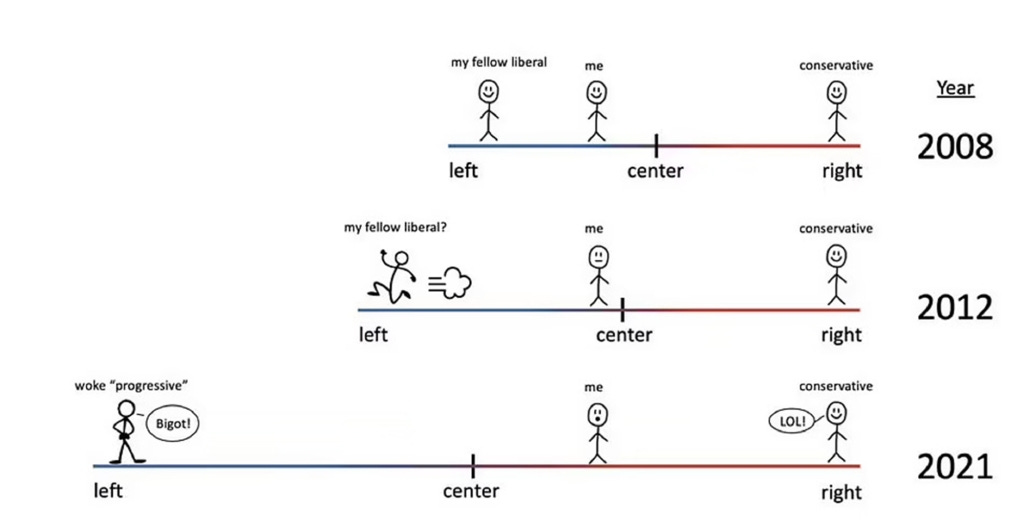This is an interesting little phenomenon sparked by an Elon Musk tweet — a debate about how much the left has moved compared to the right over the past decade and a half:
Ross Douthat had this response, which of course resolved it all immediately:
Keep reading with a 7-day free trial
Subscribe to The Transom to keep reading this post and get 7 days of free access to the full post archives.



